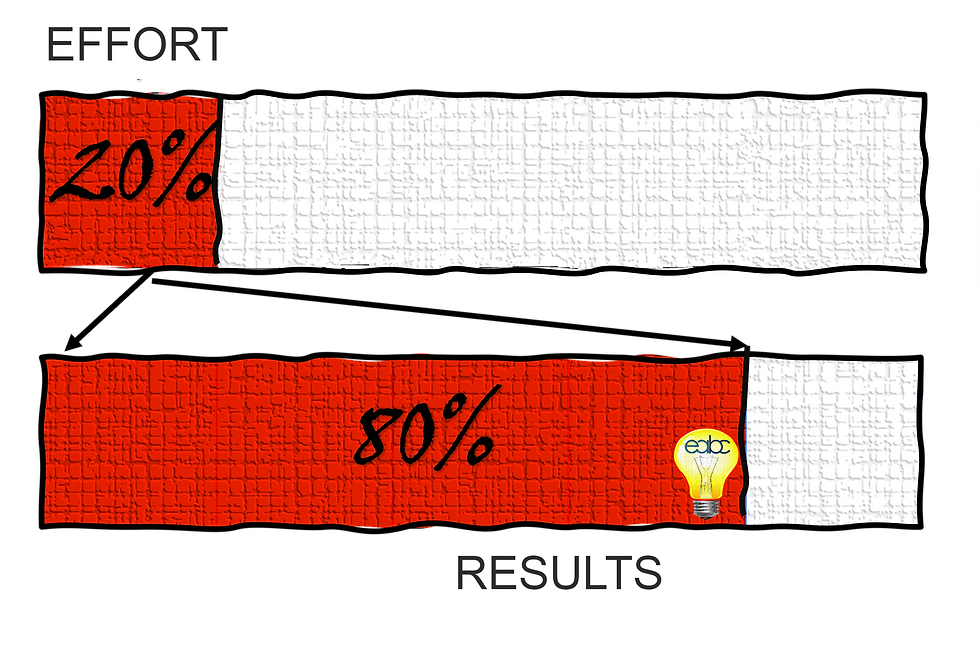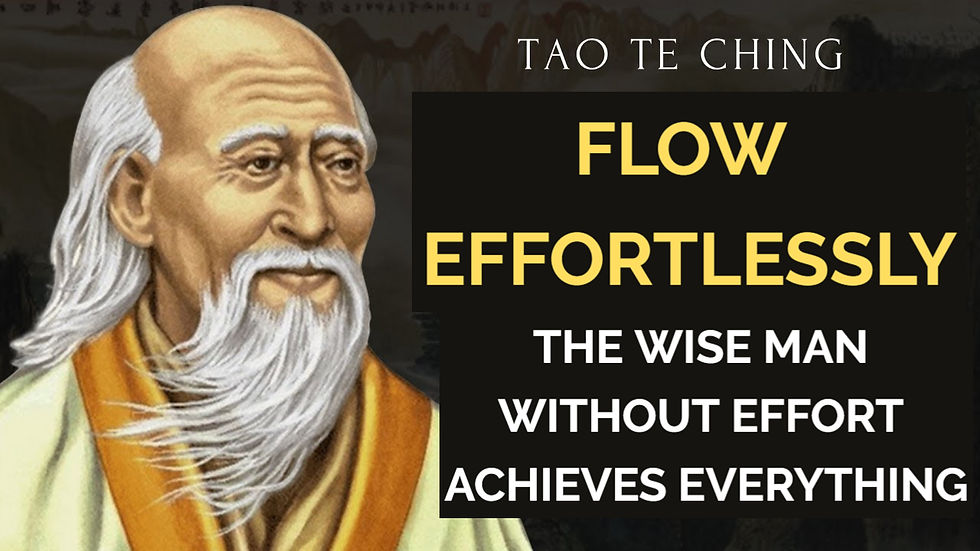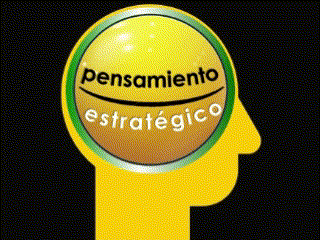The Law of Reverse Effort: The Path to a More Creative and Productive Life
- Juan Carlos Erdozain Rivera, MBA

- Jun 30, 2024
- 11 min read
Updated: Jul 4, 2024
"Mental rest is not a luxury, but a necessity for a balanced and successful life. By cultivating moments of leisure and relaxation, we not only improve our mental and emotional health, but we also enhance our ability to achieve our goals. The Law of Inverse Effort invites us to embrace the power of rest and discover that, sometimes, the key to success lies in letting go of control and allowing things to flow naturally." / Juan Carlos Erdozáin Rivera
What if Success Depends on Relaxing? The Surprising Truth about the Law of Inverse Effort
In a society that glorifies constant hustle and relentless effort, the idea that success can lie in leisure and relaxation seems like a paradox. However, the Law of Inverse Effort invites us to reconsider this notion.
This law suggests that by freeing our minds from pressure and stress, we allow our creativity and productivity to flourish. By resting, we recharge our batteries, make room for new ideas, and find more effective solutions to our challenges. The humanization of our society, in this sense, does not lie in unbridled productivity, but in the ability to enjoy free time and use it to nourish our mind and spirit.

The Paradox of Success: Less Pressure, More Results (Discover the Power of the Law of Reverse Effort)
The Law of Inverse Effort shows us that, in many cases, the harder we try to achieve something, the further we move from our goal. Excessive pressure can block our creativity, generate stress and lead us to make impulsive or ineffective decisions. On the contrary, by relaxing and allowing our mind to rest, we open the door to innovation and divergent thinking, which allows us to find more original and effective solutions.

The Magic of Mental Rest: Master the Law of Reverse Effort for a Balanced and Successful Life
Mental rest is not a luxury, but a necessity for a balanced and successful life. By cultivating moments of leisure and relaxation, we not only improve our mental and emotional health, but we also enhance our ability to achieve our goals. The Law of Reverse Effort invites us to embrace the power of rest and discover that, sometimes, the key to success lies in letting go of control and allowing things to flow naturally.
By integrating the Law of Reverse Effort into our daily lives, we can transform our relationship with work, creativity, and success. Instead of relentlessly pursuing our goals, we can learn to enjoy the process, value free time, and trust our innate ability to find creative and effective solutions.

Let's see on the left the image of a person trying to push a door that says "pull". This is a perfect representation of the Law of Inverse Effort. The more force we apply in the wrong direction, the more difficult it becomes to open the door. Likewise, in life, sometimes the harder we try to achieve something in a certain way, the further we get from our goal. The key is to recognize when we are applying force in the wrong direction and change our approach.

The Law of Reverse Effort, also known as the Law of Reversed Effort or the Law of Contrary Effort, is a concept that proposes that, in certain situations, the harder we try to achieve something, the further we get from achieving it. This is because pressure and anxiety can block our creativity, generate stress and lead us to make impulsive or ineffective decisions.
The Law of Reverse Effort suggests that rather than forcing things, it is more beneficial to relax, let go of control, and allow solutions to emerge naturally. By resting our mind and allowing the subconscious to work, we can access more creative ideas and find more effective solutions to our problems.
This law does not mean that we should stop exerting ourselves completely, but rather that we should find a balance between effort and rest. It is important to work smart, set realistic goals and allow us moments of relaxation and reflection to recharge our batteries and stimulate our creativity.
The Law of Inverse Effort applies to various areas of life, such as work, personal relationships, creativity, and personal development. By understanding and applying this law, we can improve our productivity, reduce stress, increase our creativity, and achieve greater overall well-being.
Some examples of how to apply the Law of Inverse Effort:

At work: Instead of working long hours without breaks, take regular breaks to clear your mind and recharge. Spend time doing activities that you enjoy and relax, such as walking, meditating, or listening to music.
In personal relationships: Instead of forcing things, allow relationships to develop naturally. Take time to listen to others, express your feelings honestly, and cultivate mutual trust.
In creativity: Instead of pressuring yourself to generate ideas, allow your mind to wander and explore new possibilities. Spend time doing activities that inspire you, such as reading, traveling, or visiting museums.
In personal development: Instead of obsessing about achieving your goals, focus on the process and enjoy the journey. Spend time reflecting on your values, your strengths, and your areas for improvement.
By applying the Law of Inverse Effort in your life, you will be able to discover that the path to success and happiness is not always the most direct or the most effortful. Sometimes the key is to relax, let go of control, and allow things to flow.
Although the concept of the Law of Inverse Effort has been explored by various thinkers over time, it is not attributed to a single particular author.

The British philosopher Alan Watts is often mentioned as one of the main disseminators of this idea, especially in relation to Eastern philosophies and Zen thought. Watts explored the idea that sometimes the more we want something, the further we push it away from us, and that acceptance and relaxation can be key to achieving our goals.

Writer Aldous Huxley also used the term "invested effort" in his novel "Island" (1962), where he explored the idea that excessive effort can be counterproductive, and that relaxation and acceptance can lead to better results.
Furthermore, the concept of reverse effort has roots in various philosophical and spiritual traditions, such as Taoism and Buddhism, which emphasize the importance of non-action (wu wei) and acceptance of what is.
The Law of Inverse Effort does not have a single author but is an idea that has been explored and developed by various thinkers over time, with roots in various philosophical and spiritual traditions.
THE CIVILIZATION OF LEISURE AND THE CULTURE OF EFFORT

" The Civilization of Leisure was replaced by the Culture of Effort" and this phrase can be interpreted in many ways, depending on the context and perspective:
✒️ The Culture of Leisure can be synonymous with the Law of Reverse Effort, that is, freeing our mind from pressure and stress to achieve better results.
✒️ The Culture of Effort implies pressure and stress, which wear us down and do not always give optimal results.
✒️ It can be a description of a social change
✒️ A critique of modern society
✒️ A historical reflection or an expression of nostalgia.
In any case, it invites us to reflect on the importance of leisure and effort in our lives and in society in general.
The above can say that: The Humanization of our society is in leisure, in the free disposition of our time to occupy it with whatever we want, a humanization that over time we have been losing.
The Law of Inverse Effort is correlated with the concept of a " Counter Balanced Life", meaning that in life we must maintain a healthy balance between Consistency and Rest.
Consistency implies discipline , but also rest, which we will call leisure.
The counterbalanced life has to do with the "Law of Inverse Effort" , which establishes that the more we pressure the mind to obtain a positive result, what we will actually achieve is a totally opposite and of course negative result; The reason is that the mind needs "a break" to process the information of what is being asked of it, so that, through creativity and divergent thinking, it generates not one, but many great ideas.
Gary Keller in his book "The One Thing" , mentions the five myths of work and professional success:

The phrase "Everything has the same importance" is false, the Pareto Law of 80/20 being correct
Multitask generates stress and inefficiency, and focusing on priorities is the right thing to do.
A disciplined life is not enough, it requires exercising discipline in habits that are worthwhile.
Willpower, yes, but considering the emotional peaks and valleys; There are times when willpower fails due to the human being's own biorhythm.
A balanced life (balanced) sounds tempting, the right thing being a counterbalanced life between work and pleasure (leisure) that involves the emotional peaks and valleys of the human being. In other words, the counterbalanced life implies that there are times when being in the valleys (low points) of our biorhythm, it is difficult to give our maximum physical, emotional and intellectual potential and "apparently discipline does not work"; The opposite happens at the peaks of the biorhythm.

WHAT IS A COUNTERBALANCED LIFE?
♾️ It involves knowing how to use the Law of Reverse Effort
♾️ Knowing how to separate work life from personal life to "balance" them since each one has its own objectives and counterbalancing approaches (peaks and valleys of the biorhythm).
♾️ Work involves knowledge and skills that lead to Job Competencies; Work life is divided into two areas: the one that matters most and everything else. Therefore, what is important must be carried out to the extreme and be okay with what happens with the rest.
♾️ With the above, you must balance your personal life, which has multiple areas, and each one requires a minimum of attention to "feel good about life."
♾️ Let the "right activities" be a priority when necessary and do the rest when you can.
An extraordinary life is an act of counterbalance between work and personal life. When you act based on priorities (in work and in life), you will automatically be counterbalancing. As an example, let's see the graph that appears below this text:

All this reminded me of a topic that was raised in 1932 by Bertrand Russell in his essay "In Praise of Idleness." and in 1936 by Jacques Leclercq in his essay " In Praise of Sloth".
In his essay, Jacques Leclercq tells us the following:
"Everyone goes about business. People go about their business. Nobody dares to say that they go somewhere simply to have fun. In the case where business, however vague, no longer presents any possible justification, his forehead wrinkles, his eyes become even more worried, and he says to himself: "My doctor tells me to rest."
WHY IS THE CULTURE OF LEISURE (REVERSE EFFORT) BEING CONDEMNED IN THIS TIME AND REPLACED BY THE CULTURE OF DIRECT EFFORT?


Paraphrasing the article "Praise of Laziness" by Luisgé Martín and my own experiences, I remember that, in 1985, working for "Shell México", I witnessed how the first PC arrived at our office on Insurgentes Sur Avenue of Mexico City; it was truly a moment of great expectation, because no one even knew how to turn on the computer.
After a couple of training sessions, we all marveled that our workdays were going to be reduced from 8 hours a day to six or less.
Faced with this scenario, we all began to talk about the new distribution of work and the civilization of leisure .
Technology, with the "beating drum", announced to us the advent of happiness: the technological revolution that was taking place would allow human beings to finally stop earning their bread by the sweat of their brow and dedicate themselves to their family, to their loved ones. hobbies and pleasures.
How far we were from reality, today, we work longer hours, without time limits, without respect for rest hours at night and on weekends and all this for less money.
Birthday parties in companies and in order not to waste time, are done in packages, that is, the birthday of one month get together on the same day to celebrate them and thus avoid distractions.
It is now asked that we retire later, if we can retire, and furthermore, we should not get sick if we want to collect our salary.
Due to the above, "The Civilization of Leisure (Reverse Effort)" was replaced by the "Culture of Direct and Exhausting Effort".
It seems that we had bitten the apple of some forbidden tree, for which we were expelled from a paradise that not even many of the new generations got to know.
LOST PARADISE?

The Lost Paradise that I knew: in my first working years, working was not as enslaving as it is today, because the Age of Intensive Information and Communication had not yet appeared. At that time, for example, going on a work trip seemed like going on vacation, because since there were no cell phones or laptops, it was very difficult and expensive for your boss to call you. They also didn't make calls or send you WhatsApp's at inappropriate times to your house, much less on weekends.
There was also no such thing as "Zoom", which has become (by the Home Office) an invader of the privacy of your home.
It is as if in reality between the end of the 20th century and the beginning of the 21st, we had made a mistake that threw us from the comfort of a Low Risk Culture, to a High Risk Culture , where there is no longer time for that "Humanizing Leisure" .
The question is: How can we claim to achieve a better balance between Extreme Leisure and Extreme Work?
What is the balance point?

To answer this question, we must use "The Law of Polarity."
On this planet everything is a balance; For example, if we see the attached image, on the left side we have ice, on the right-side steam and in a state of equilibrium Water.
Ice maintains balance on the planet so that the seas on the continents do not overflow; steam maintains balance to generate rain and renew the seas; The seas maintain balance for the generation of oxygen to sustain life.
Regarding Laziness, what is the balance point?

Using "The Law of Polarity", there are, for example, overly responsible people (almost Work alcoholic), who feel "guilty" for taking time for leisure.
Leisure at its extreme left is unproductive, it is laziness; Its opposite, on the far right, is a work addiction (work alcoholic) and, at its point of balance, there is a "VIRTUE: TEMPERANCE , which stimulates serenity, generates creativity and stimulates intuition. It is at this point of equilibrium where we find "The Law of Inverse Effort"
IMPLEMENTATION OF THE LAW OF INVERSE EFFORT:

The Law of Inverse Effort can be a powerful tool to improve your life in different aspects. Here I present some ways to apply it:
Identify situations in which you are applying excessive effort: Observe times when you feel frustrated, anxious or stuck despite your efforts. These may be indicators that you are applying force in the wrong direction.
Relax your mind and body: Practice relaxation techniques such as meditation, deep breathing, yoga or simply spend time doing activities that you enjoy and help you disconnect.
Allow solutions to emerge naturally: Instead of forcing things, trust your intuition and allow ideas and solutions to come to you spontaneously.
Cultivate acceptance: Accept that you can't control everything and that sometimes things don't go as you expected. Learn to flow with life and adapt to circumstances.
Trust the process: Have faith that things will work out in due time and that the universe will guide you to the right path.
Set realistic goals: Don't push yourself too hard or become obsessed with achieving perfection. Set achievable goals and celebrate your achievements, no matter how small.
Learn to let go of control: Don't hold onto your ideas or plans rigidly. Allow things to change and evolve naturally.
Practice gratitude: Be grateful for what you have and for the lessons you learn along the way, even from mistakes and failures.
Cultivate positive thinking: Focus on your strengths and the opportunities that are presented to you, instead of obsessing about your weaknesses and obstacles.
Seek balance: Find a balance between effort and rest, between action and reflection, between work and leisure.
By applying these principles in your daily life, you will be able to experience the benefits of the Law of Reverse Effort, such as greater creativity, productivity, well-being, and success in your projects. Remember that it's not about stopping trying completely, but rather finding a more balanced and effective approach to achieving your goals.

SOURCES:
1) Russell, Bertrand. Biographies. https://www.biografiasyvidas.com/biografia/r/russell_bertrand.htm
2) Martín, Lusigé. Praise of laziness. June 1, 2012. https://elpais.com/elpais/2012/05/29/opinion/1338317588_867296.html?event=go&event_log=go&prod=REGCRART&o=cerradomx
3) Erdozain, Juan Carlos. Intuitive Thinking, Beyond the Rational. https://www.eabc.website/post/pensamiento-intuitivo-más-alla-del-racional
4) Leclercq. Jacques. Praise of laziness. © 2014.
5) Erdozain, Juan Carlos. Pareto's Law. https://www.eabc.website/post/la-ley-de-pareto-o-del-mínimo-esfuerzo
6) Keller, Gary. "The One Thing" . Board Press. 2021

















Comments